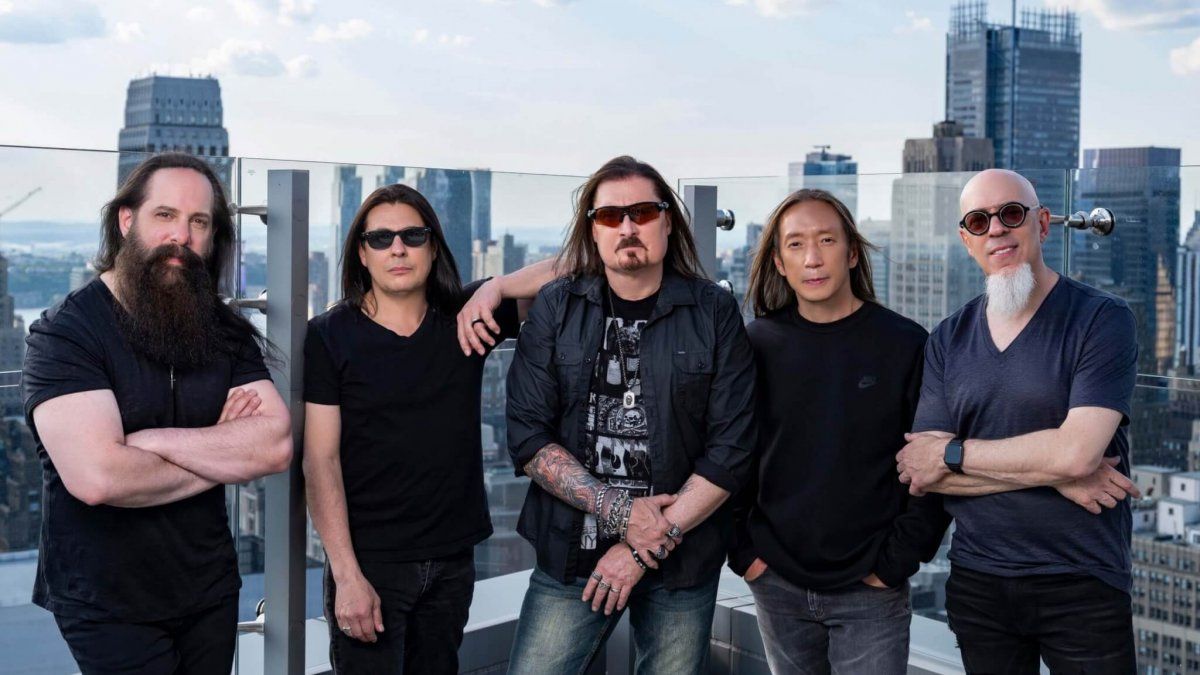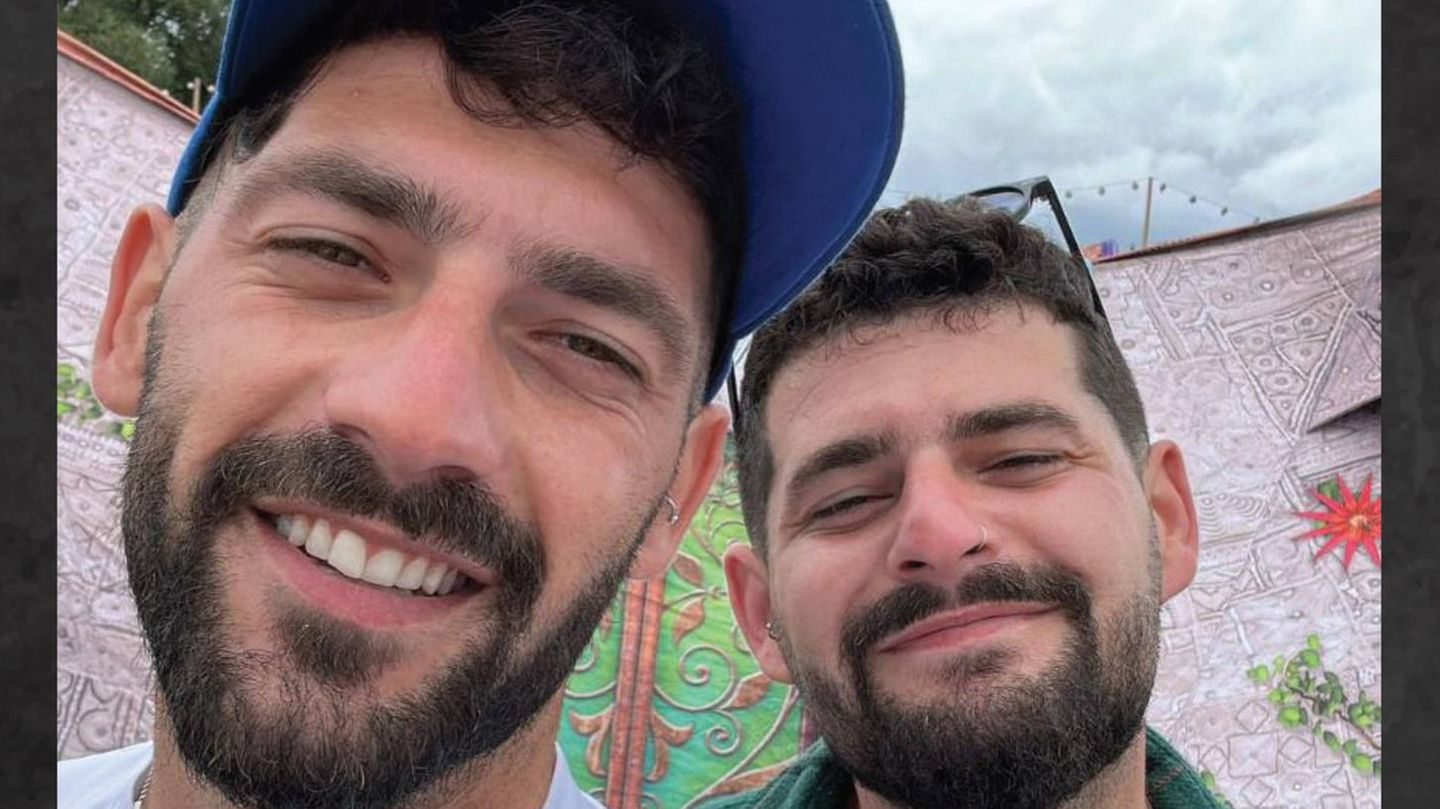“When we went to other people’s studios, we always felt a kind of time pressure because you have to leave at a certain time. And when Dream Theater makes music and releases an album, we take it very seriously and spend whatever time necessary to get the results we really want,” said the musician.
The keyboardist who shares a group with the guitarist John Petruccithe bassist John Myungthe singer james la brie and the drummer mike manginiadded that “having our own place makes that much easier and the concentration much stronger. And I think that is reflected in every possible way on the new album, which is all so carefully: from the tone of the guitar, the keyboard sound, the drums and bass, the microphones. It’s the Dream Theater style of doing things, in a very serious and certainly profound way. So having the new studio is great.”
After going through Rock in Río where he shared a poster with Iron Maiden Y Grave, Dream Theater will stop at the stadium in the Villa Crespo neighborhood as part of its international tour “Top of the World Tour”.
The pioneering group of progressive metal has just won its first Grammy for its song “The Alien”, cut from its latest album, and thus will perform again in Buenos Aireswhere in 2012 he recorded “Live at Luna Park” with a video, edited a year later, and where he was for the last time in December 2019.
Télam: With the great Argentine fan base, do you have good expectations for the next show? Are there good memories of previous recitals?
Jordan Rudess: We have a very special connection: we did the movie-concert at Luna Park. We don’t do this type of production anywhere in the world, so we chose Buenos Aires for a reason, we had reasons. Because the fans are great there, incredibly engaged and have been enjoying our music for a long time. We were doing pretty well there. The concerts there are well remembered because the public is very passionate and when I remember those moments, it makes me want to play again.
T: For a renowned band that took a couple of decades to be recognized with a Grammy, recently, do you care about those kinds of mainstream awards, being that they make a genre that is not, or do you care about winning it?
JR: We are very very happy for the Grammy. We have no problem with having that recognition in the mainstream. I think it’s great, after all these years. It doesn’t mean that we make mainstream music but that more people know us and that environment is aware of Dream Theater, that’s wonderful. And one of the best things about winning the Grammy is that I feel like maybe that opens the door for other bands that are in our genre of progressive metal, or progressive music, and even others that are not as well known, to be recognized as well. So hopefully it’s a start to enable other great musicians that we know from the prog scene to be recognized. But for Dream Theater in particular, we were completely out of the Grammy scene, we weren’t aiming there at all. We were very separated from all that and we thought that it was never going to happen, that it was at one end and we at the other. But it happened that recently, in the last twelve years, we said “why don’t we try to expose ourselves to that a little bit and show ourselves on that side to be recognized?”. And since then we started receiving nominations. So it’s great, I can’t tell you I didn’t care, I think it’s really cool because more people know about Dream Theater now and it’s the kind of thing that can open a lot of doors. It’s the first thing anyone would put on their resume, so I couldn’t say it’s a bad thing.
T: How do you get along with the new musical mainstream, dominated by reggaeton and trap?
JR: I don’t even have a clue what that is. I’m sure I’ve heard it but I didn’t know they called it that. I like to be aware of different sounds and styles, I am not a musician who ignores new fusions. I think it’s great that people find new ways to combine things. At the same time, for me there are other elements to incorporate into the fusion of what a group like Dream Theater is or the experimentation that I myself would like to do.
T: How did you handle the issue of isolation during the pandemic in creative terms?
JR: I had a very productive time during isolation. I started a Patreon account, which is a service that allows artists to get closer to their fans, and I organized something on that side with my wife, who is a producer and helped me a lot. We had a lot of very entertaining exclusive live broadcasts, where he played piano and synths. The contact with fans all over the world was very good. Even today when I’m on tour I share some materials with you. I really liked putting all that together. By the time we got back together with the band after the lockdown, I felt that lockdown had been enough and it was time to get back in the studio.
T: What have you been listening to lately? Any new band to highlight?
JR: There’s a new prog rock band I’ve been listening to recently, Wilderun, which is really good. Also, not in the realm of prog rock, I was recently exposed to the award-winning album by the duo Silk Sonic (comprised of Bruno Mars and Anderson Paak), I even went to see them in Las Vegas and it was great.
Source: Ambito
David William is a talented author who has made a name for himself in the world of writing. He is a professional author who writes on a wide range of topics, from general interest to opinion news. David is currently working as a writer at 24 hours worlds where he brings his unique perspective and in-depth research to his articles, making them both informative and engaging.




